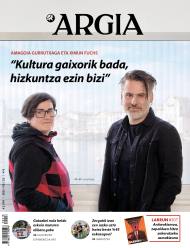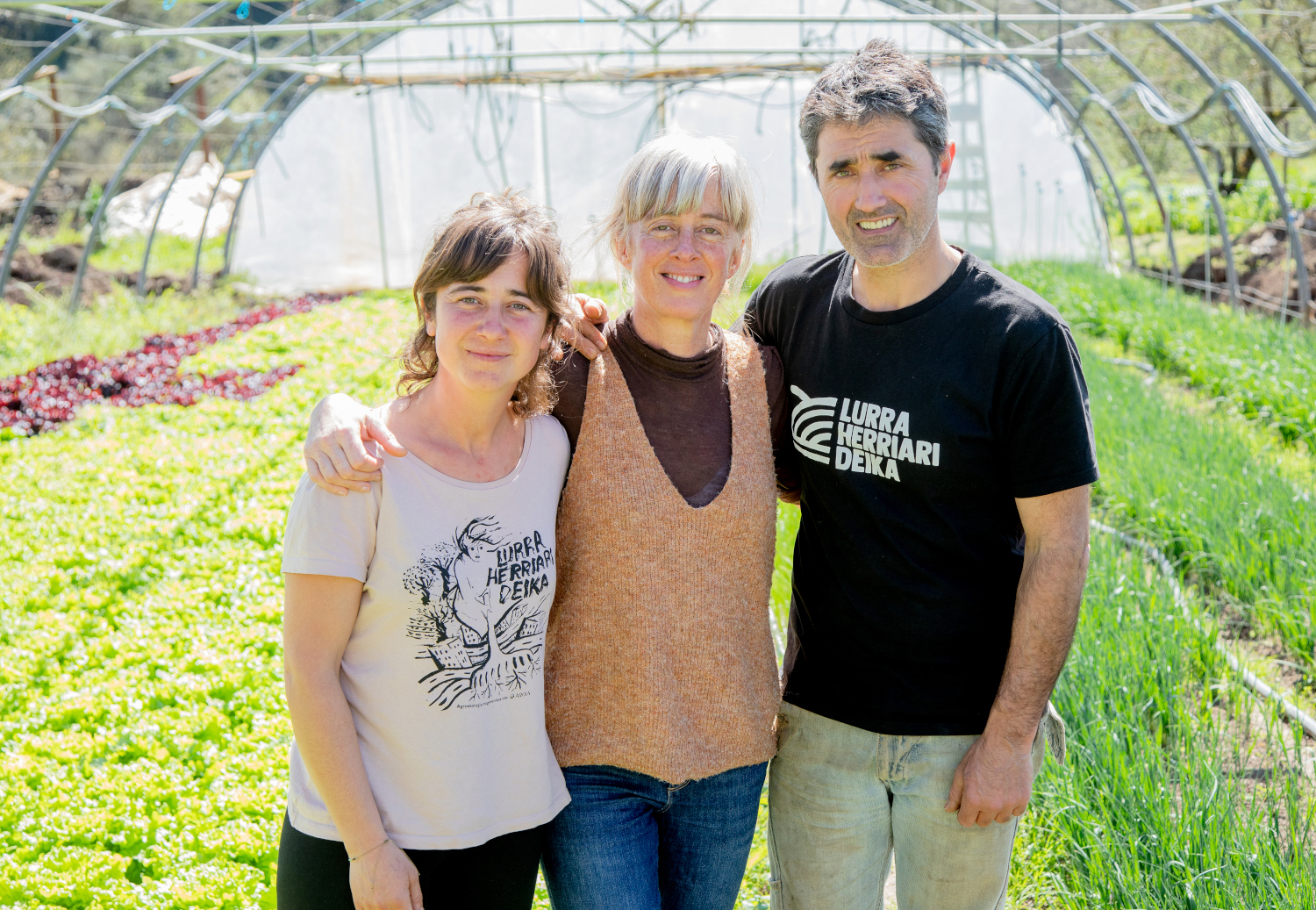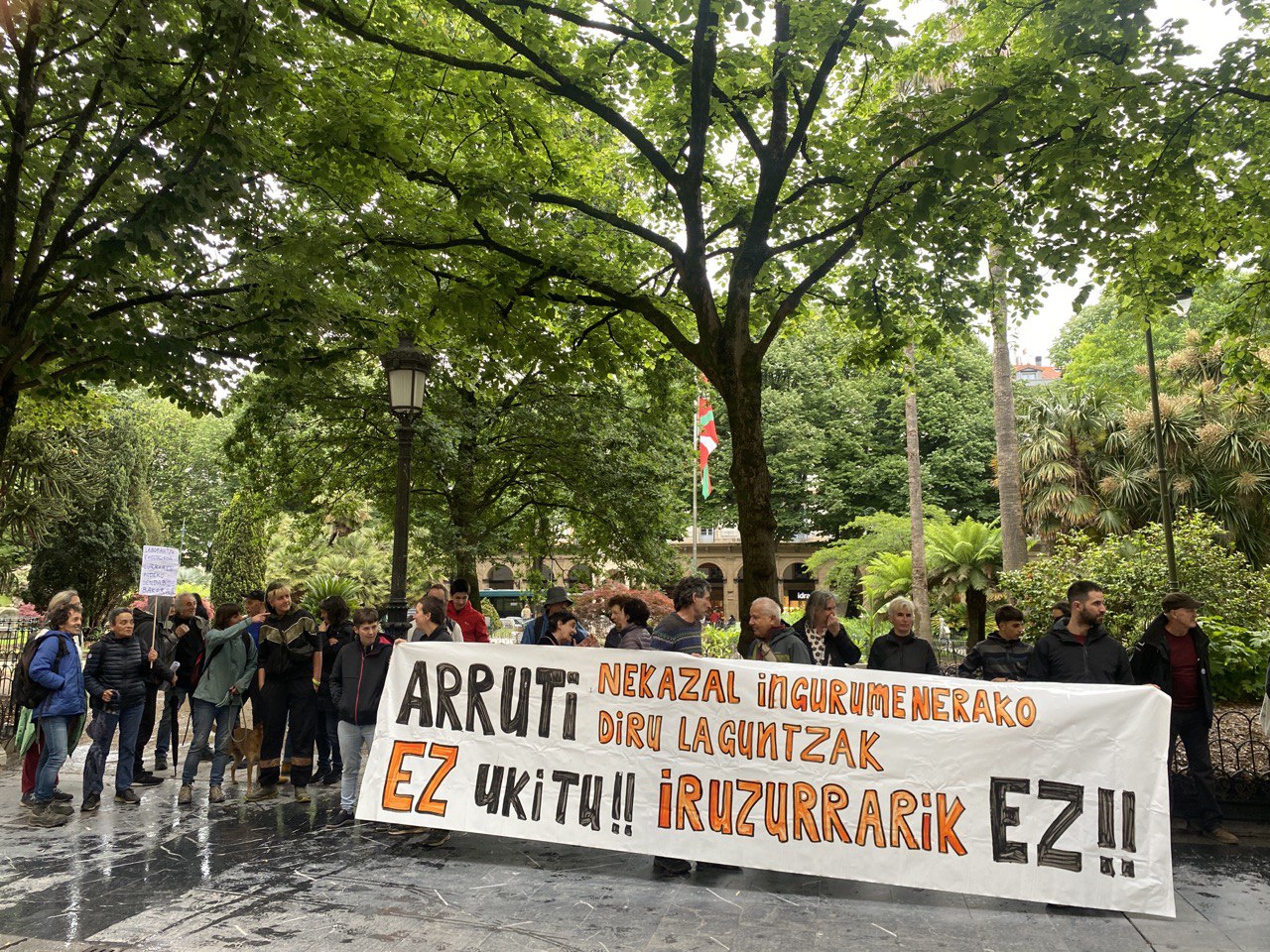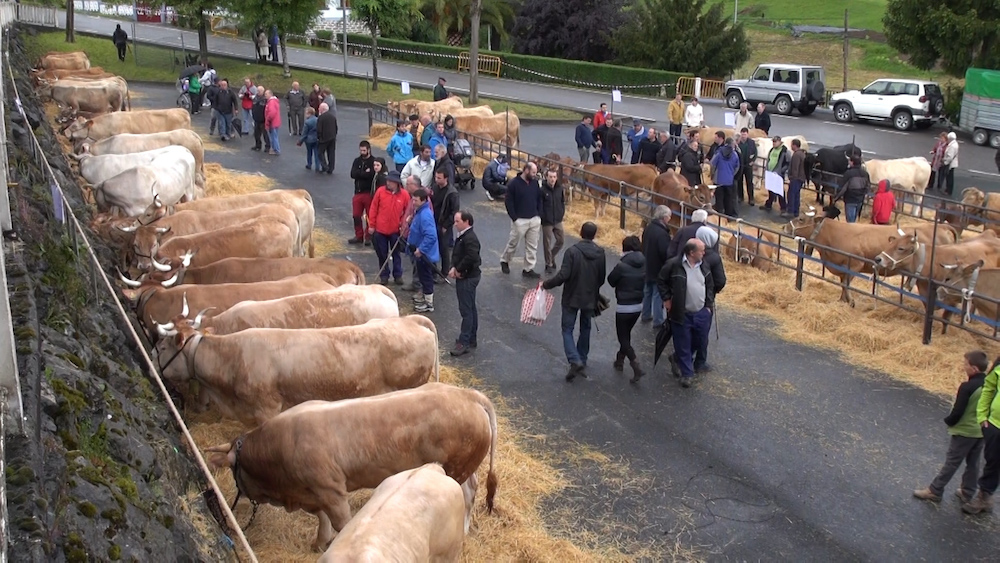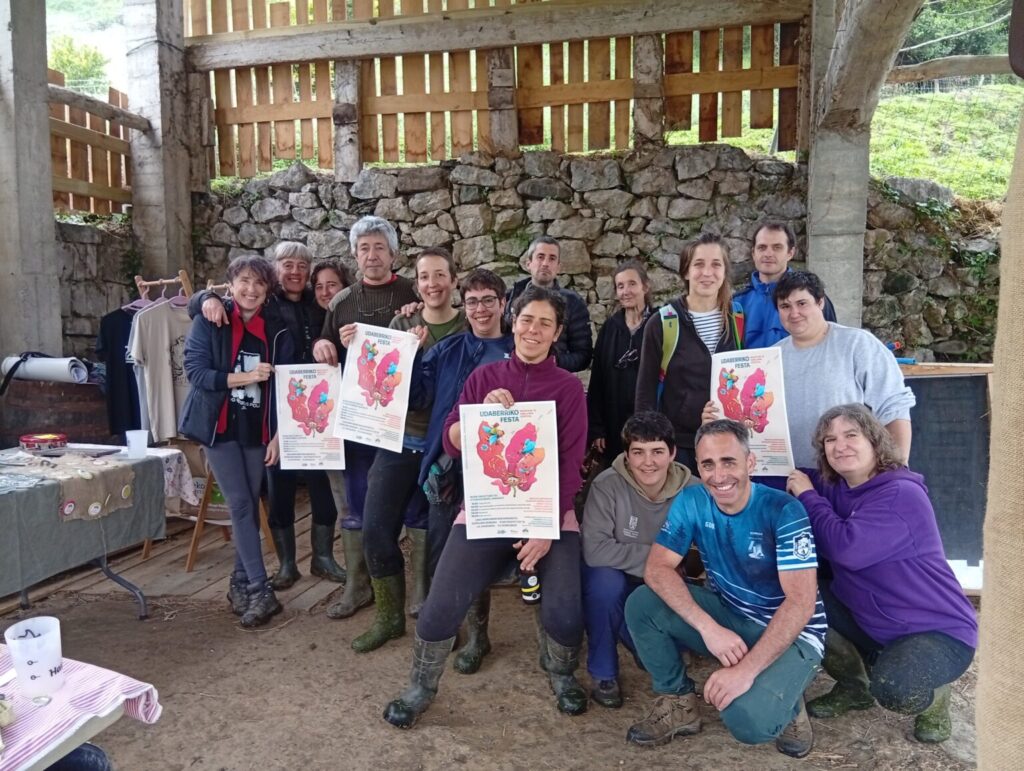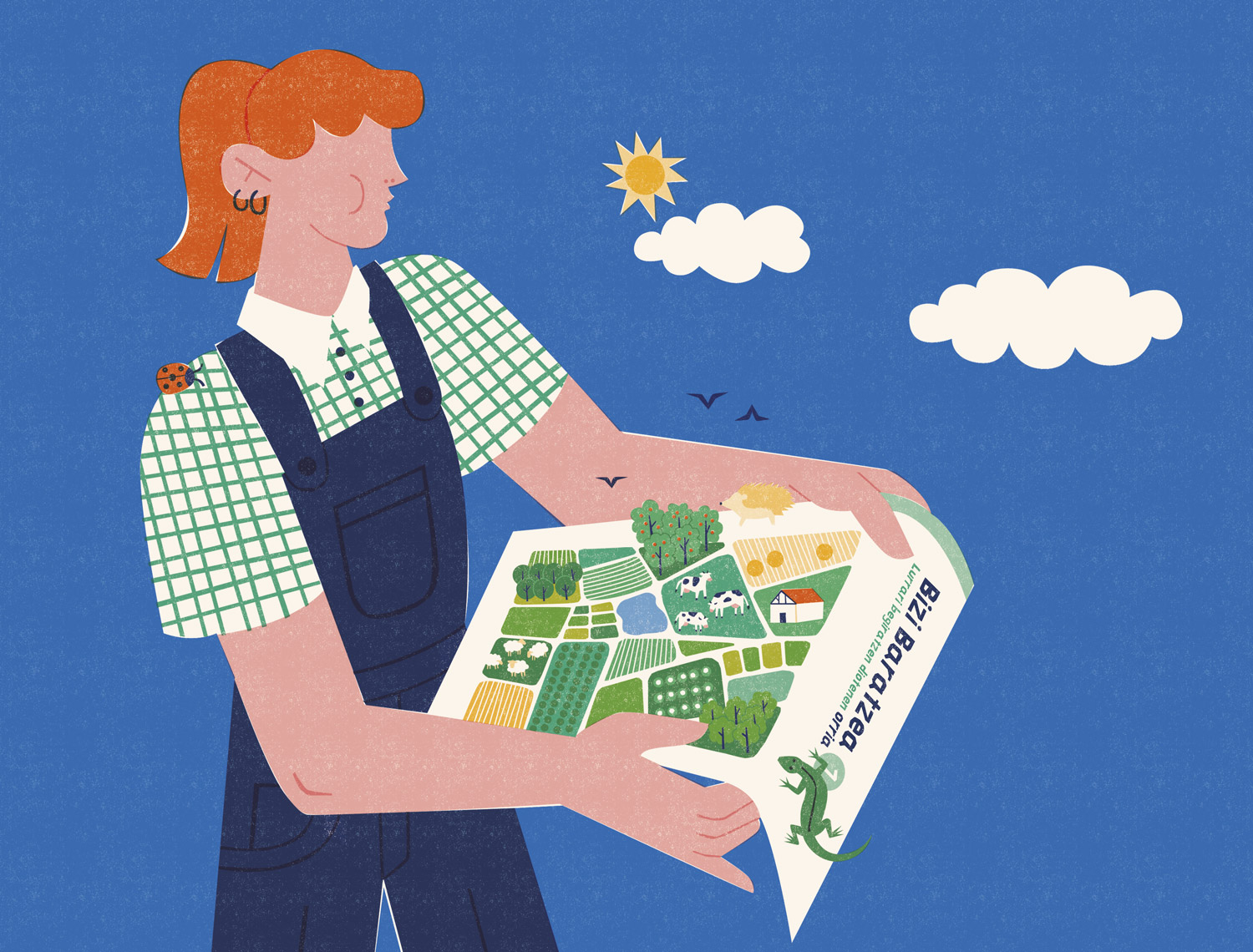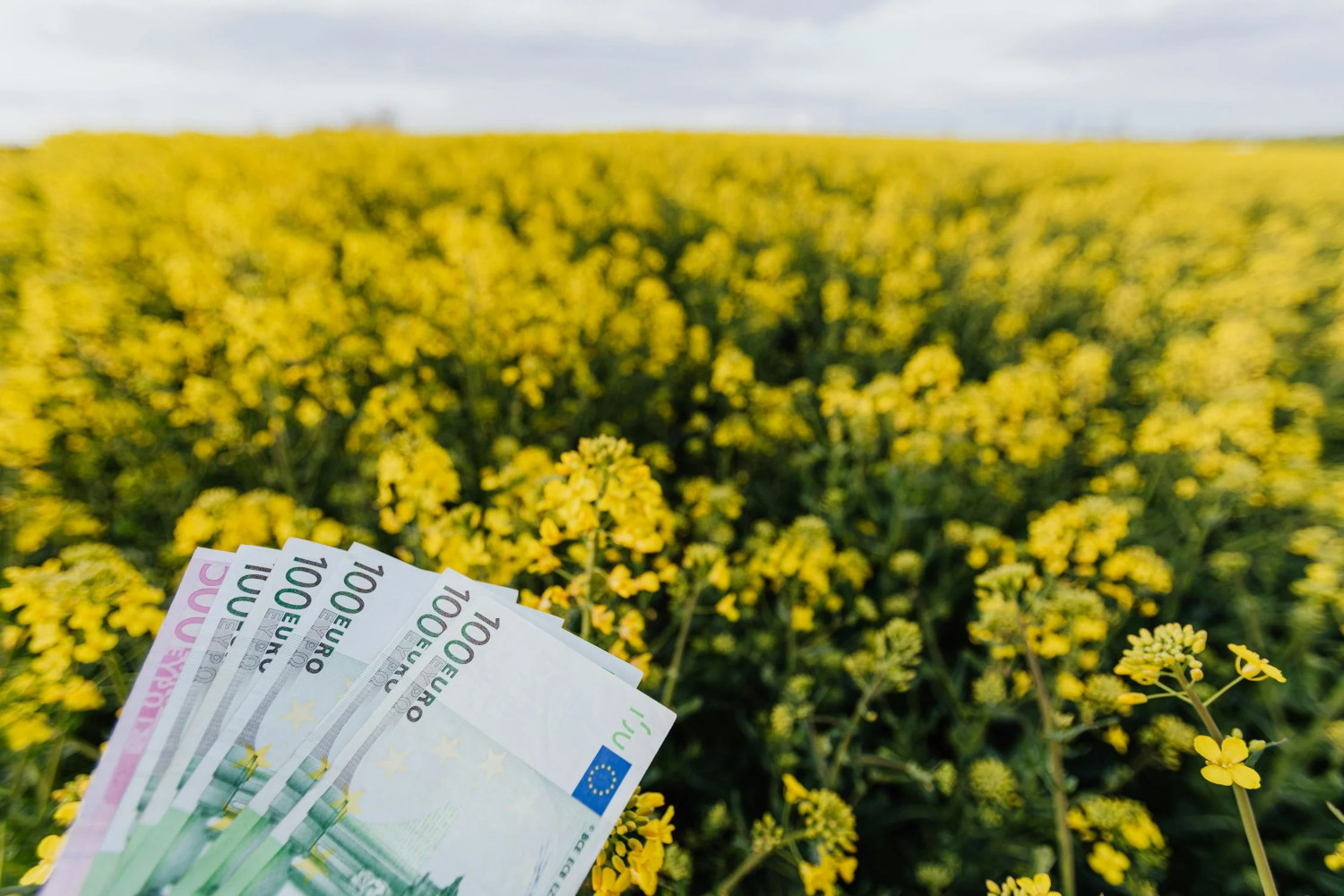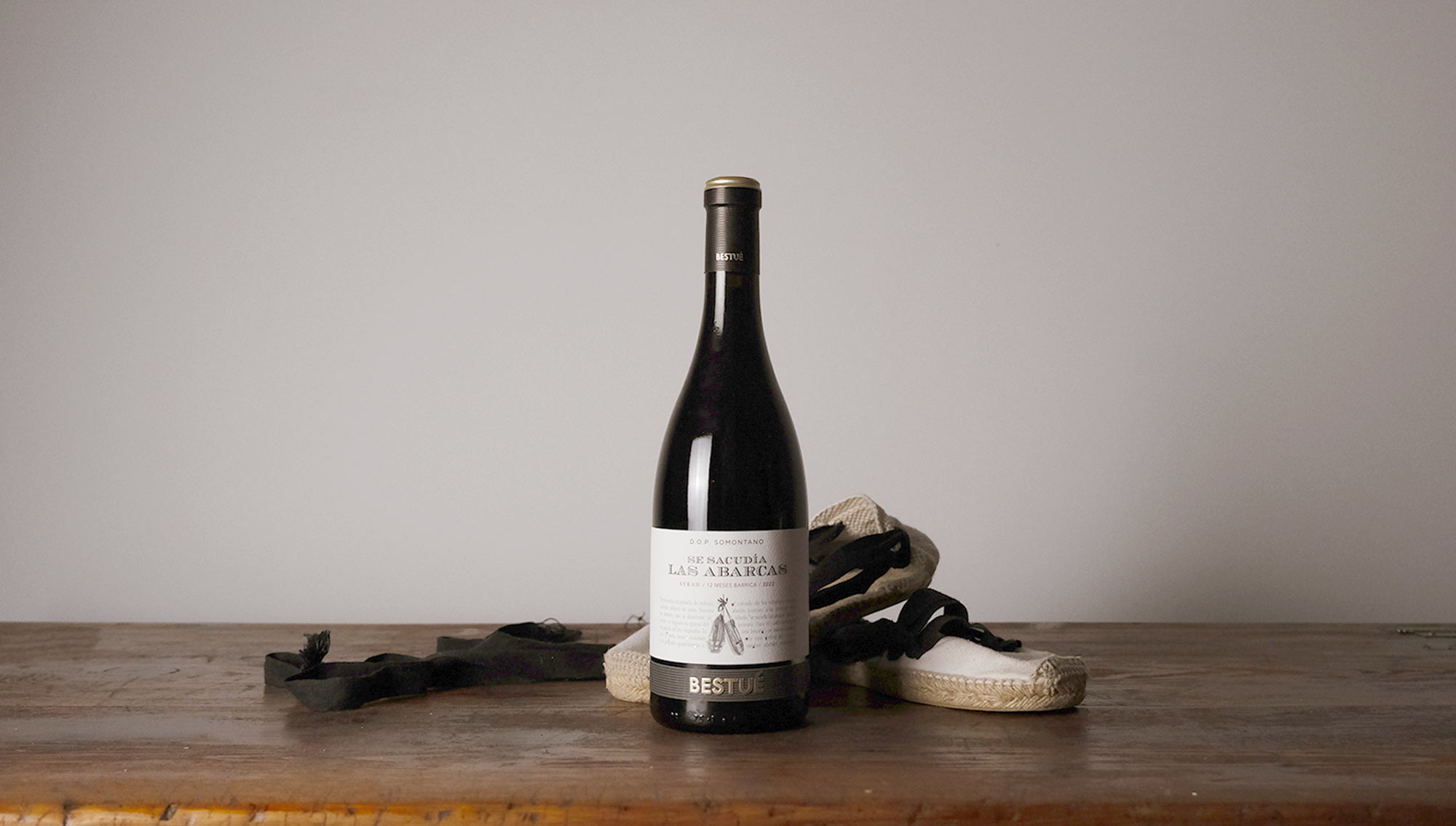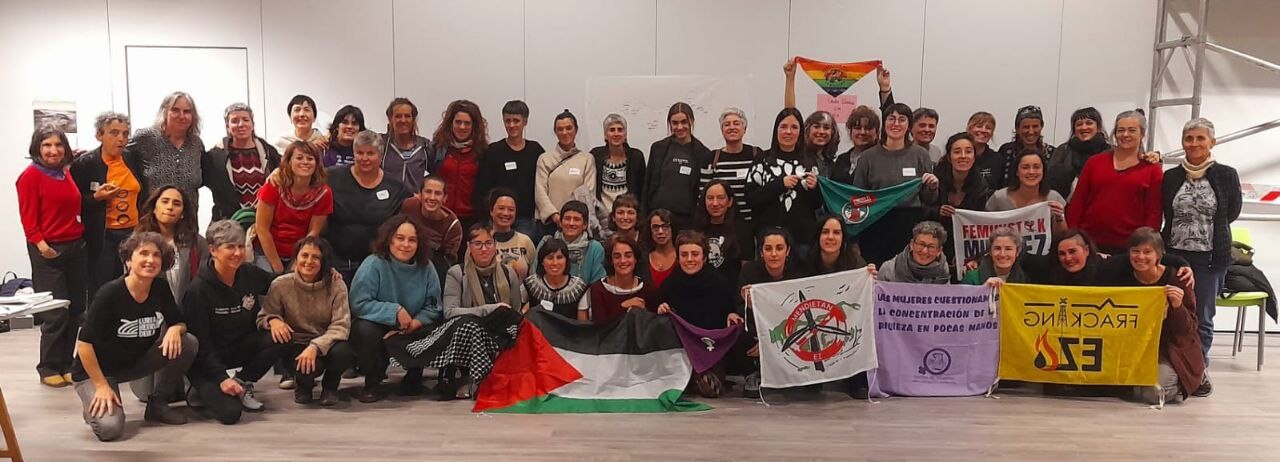Collective organization and relay as a subject of study
- On May 10th, the citizens and farmers of the Food Sovereignty Movement met in the Amillubi project, located in the Iraeta neighborhood of Zestoa. In this second edition of the Spring Festival, two roundtables were organized in the morning and the shed in front of the Amilibia farmhouse was filled with listeners. In the afternoon the party continued in the greenhouse, with humorous words and music.
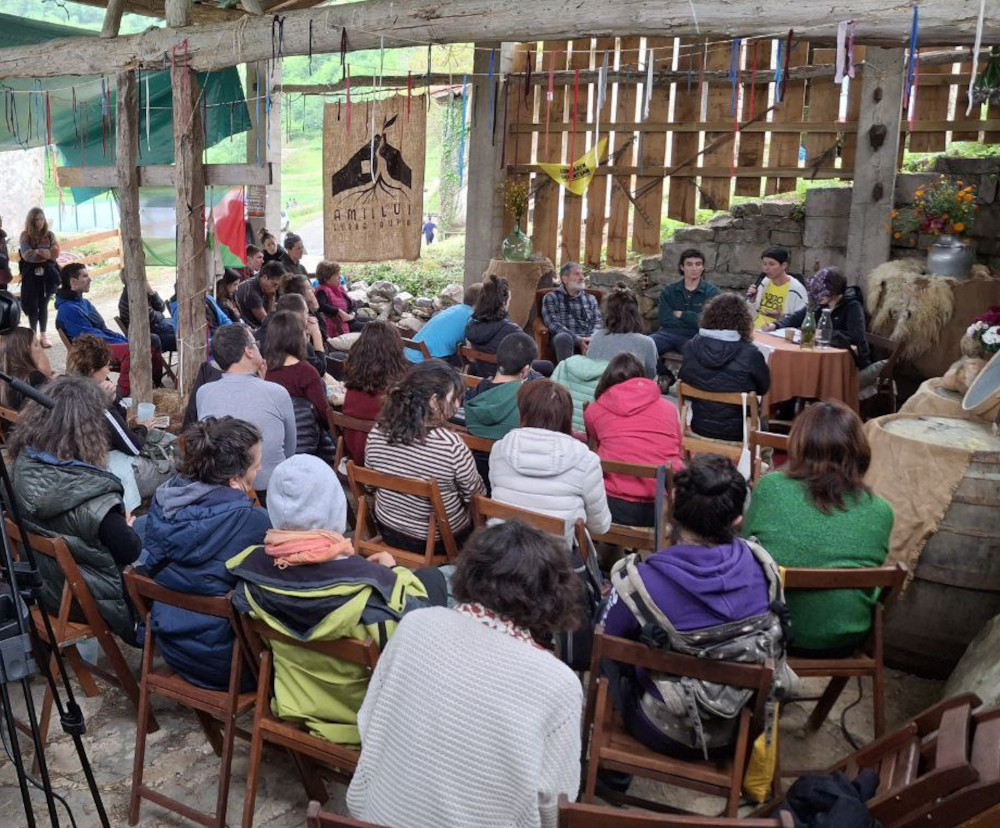
At the beginning of the day, the organizers recalled that Amillubi "is a project of the population to have food and land for the peasants, which Biolur started in 2023 with the aim of transforming the land into a collective good". They added that they understand access to healthy food as a human right and that in the path of sovereignty, they want to "create sustainable, dignified and stimulating production projects". They proclaimed that "in the ecosocial crisis we are currently experiencing, sustainable and sustainable land projects have a vital priority and importance."
This year’s festival also focused on “starting to build a collective solution” to the problems and challenges facing society. For this purpose, two round tables were held, which are visible in the videos and which we have summarized in this text.
Advantages of collective organization
The party was initiated by a round table between three agroecology projects organized in the collective. The three mentioned that although each employee has their usual tasks, they guarantee that everyone knows how to do everything so that no one is indispensable.
In Baztan, the Eztibel cooperative cultivates ciders, produces cider and manages the Larralde Cider House. Local associate worker Xabi Torres explained: "Formally it is a cooperative association, but in reality we are fourteen members articulated by private contract, of which three are associate workers and the others are associate partners. We've all put in the same amount of money to be cooperative. On top of that, some have put in more money according to their potential and that will be returned to them over the years as the cooperative earns money; yes, interest with zero, because we have poison interest." But he added: "And then there's a very important figure: friends. They support the neighborhood. If it wasn’t for them, the project wouldn’t have gone ahead.” He also explained that seven workers are hired during the cider season. Although they have different types of membership, they are clear: “It’s the employees who make the decisions. It’s different to give an opinion about a project, or your bread is at stake.” Of course, they listen to the opinions of the collaborating partners.
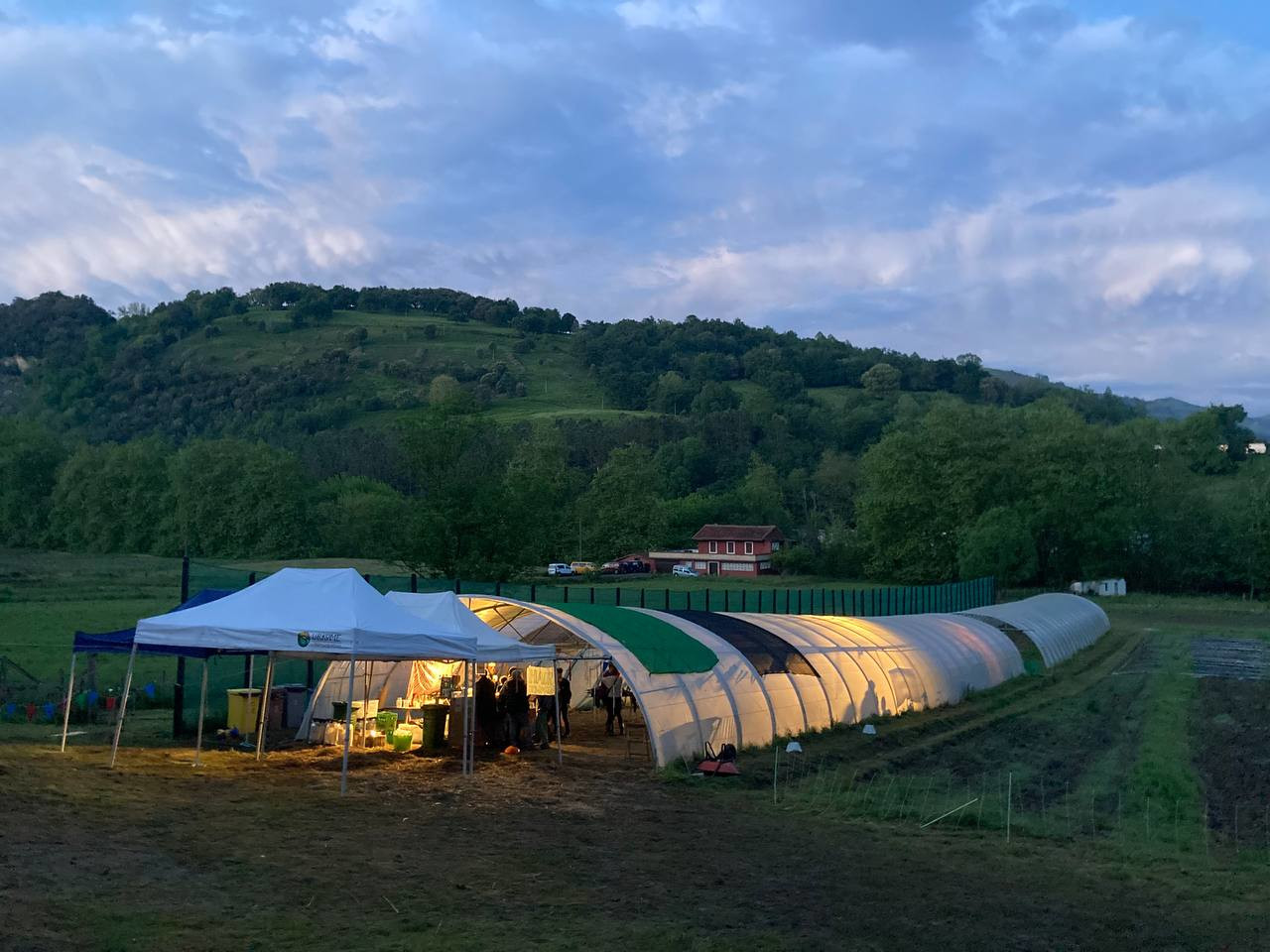
Another of the projects that participated in the round table was Manbaratz. Located in Izurza, this garden project was launched twelve years ago by three members. Currently there are five employees and they have a process in place to make all the employees partners, and to put and distribute names to the tasks and responsibilities in the path of horizontality. Its member, Asier Goi, explained: "We work at the Dolphin and most of us are from Arrasate, Bergara and Abadiño. This gives us distance, which is also healthy: if we go home after work, we do what we have to do. We have fixed working hours, we try to have three free afternoons, and we only have to work on shoes every four to five weeks. We have the right conditions to be brave.” He explains that organizing in the collective allows them to: "This year we have agreed to have a six-week vacation, and so far we have managed to have a four-week vacation. Collectivity also allows us to cover casualties and surveillance tasks."
The third experience of the round table was the consumer cooperative of Ereindajan Bergara. Ainhoa Narbaiza, a local associate worker, explained: "We are a small cooperative of associated work, so the most important decisions in the day-to-day operation are in the hands of the workers. But there are also consumer partners and producers, and strategic decisions are made through assemblies." They are active agents in the Food Table of Bergara and collaborate with public institutions in various projects. He explained that in these cases it is very important "to have a strong social base behind, without this support we are not going anywhere."
Keys to the relay
In the second round table, three other experiences were related to the relay. The production of Baztan Xurie wine was started in Arizkun in 2013 by two people from scratch. Ana Iriarte narrated the three blocks of problems that had occurred: "One is access to land, we had no land, no economic capacity to buy land, and the way out was to rent the land. Another block of difficulties is economic: on the one hand, the investment to start the project and, on the other, the economic permanence of the vineyards for several years during the start of the harvest. Thanks to the subsidies we were able to cope with the investments. And the solution we were looking for to be able to last for the time until we started producing was that one of the two worked outside; even today the member has half a day of work outside to be able to support him financially. The third block of difficulty is bureaucratic. We really miss a one-stop shop that will explain our idea and give us a list of procedures to follow." Since they started from the new one, another obstacle was that they did not receive a transmission: "To acquire knowledge about production, we went to the winegrowers of Baigor. In Fraisoro we have developed specific courses and for us Biolur has been a great source of training in organic viticulture".
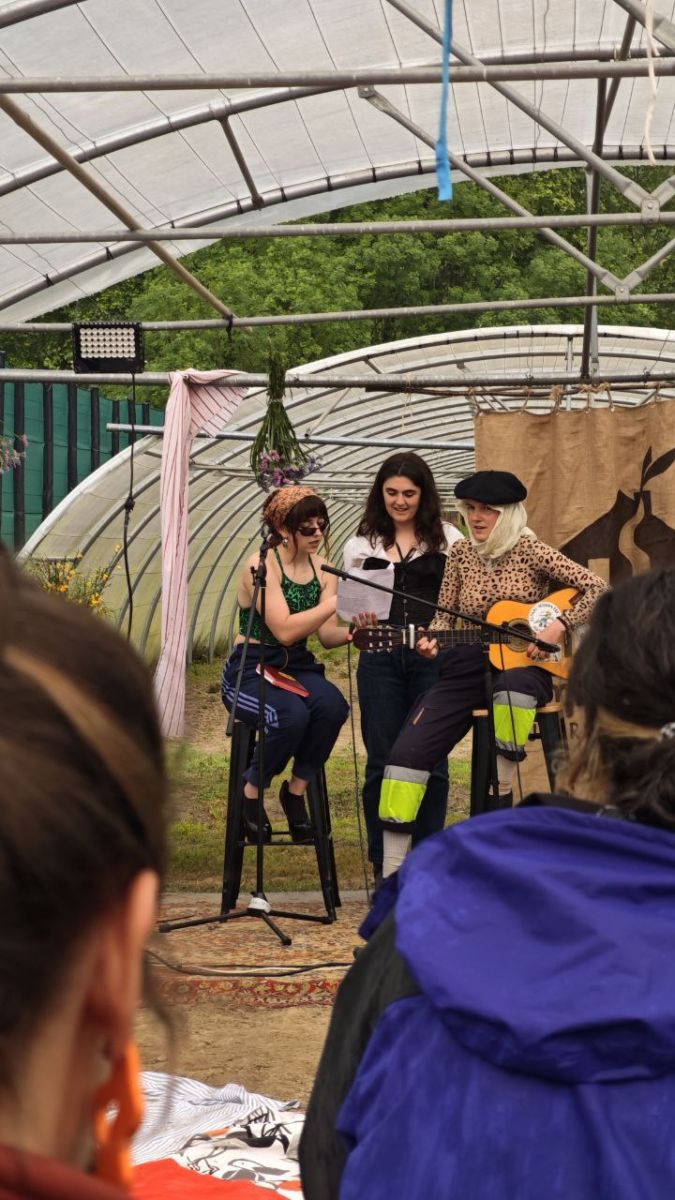
Bizkaia is a very different experience in terms of relay: founded more than 40 years ago by two or three members in Errigoiti, which cares for cows and grows milk and dairy products. Comrade Xabi Sabalza explained: "Since we have taken over, it has been a facility that we knew our model was viable. Seeing around 2019 that those who started the project were of retirement age, we proposed to carry out the generational relay in an integral way. We saw that we had to be a team of ten people to make the project sustainable and sustainable. And in addition to the survey of the project, we also carried out the infrastructure survey, because the previous ones were obsolete. Now we are in the moment to stabilize the group and pay for the infrastructures. But we were clear that we were not going to do the infrastructure for ourselves, but for the sector. We have received public money to renovate these buildings and public money cannot be privatized. We have received it in the statutes that we are currently the ones who manage the project, but we are not the owners of the project: we cannot sell it and take its share to the pocket. The infrastructure will always be there and can be used by a project if it is in an agrological way."
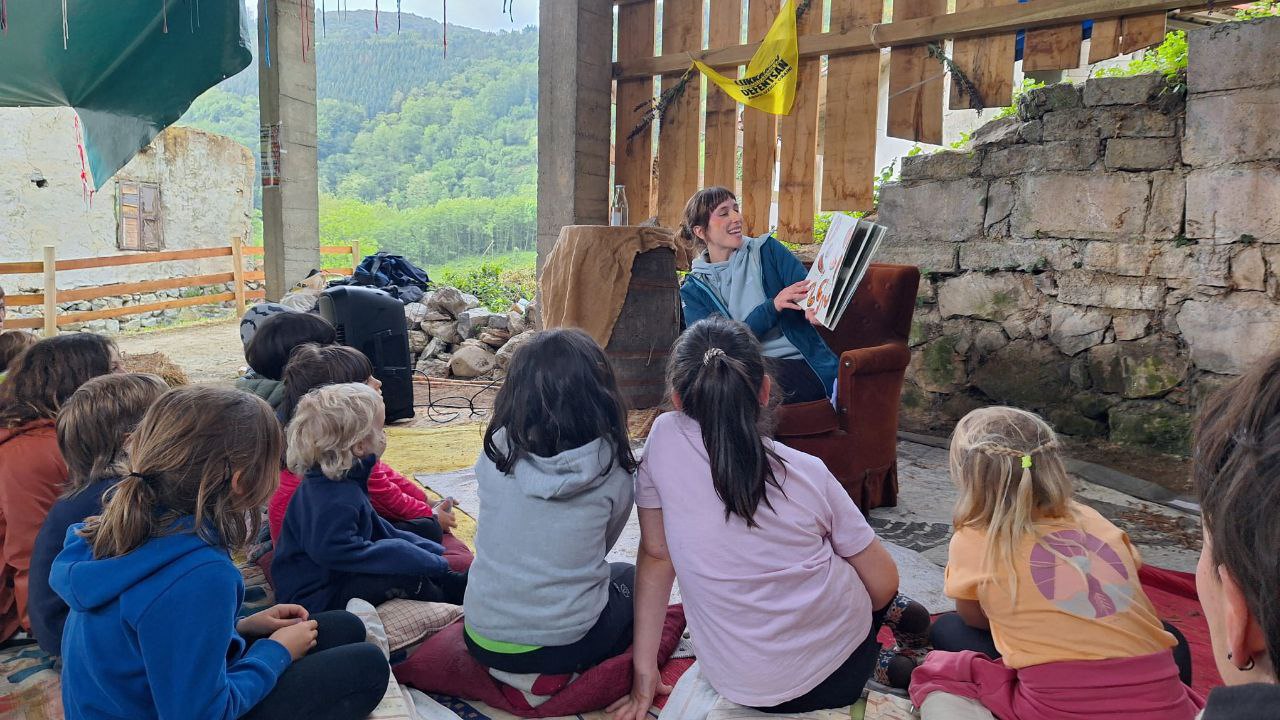
Gregorio Zuaznabar Sarobe of Anoeta, who was born on the farm and explained at the round table that at the age of 24 he decided to stay on the farm: "And to continue the work that our parents were doing." They carry the farm between their partner and both, but they are on the verge of retirement: "And we don't have anyone left in the family." They want to find relief so that someone can continue to produce on that farm. He explained that it would be a great help in this process to open the way for those who, through some agent or others, need to relay and can be ready to receive to come into contact with each other. On the other hand, he said that in such a process many issues need to be addressed and advice in these areas is needed. He explained the open vision that they have had a way of doing the work so far and that those who follow will develop theirs: "Taking what they liked about us and adding other things."
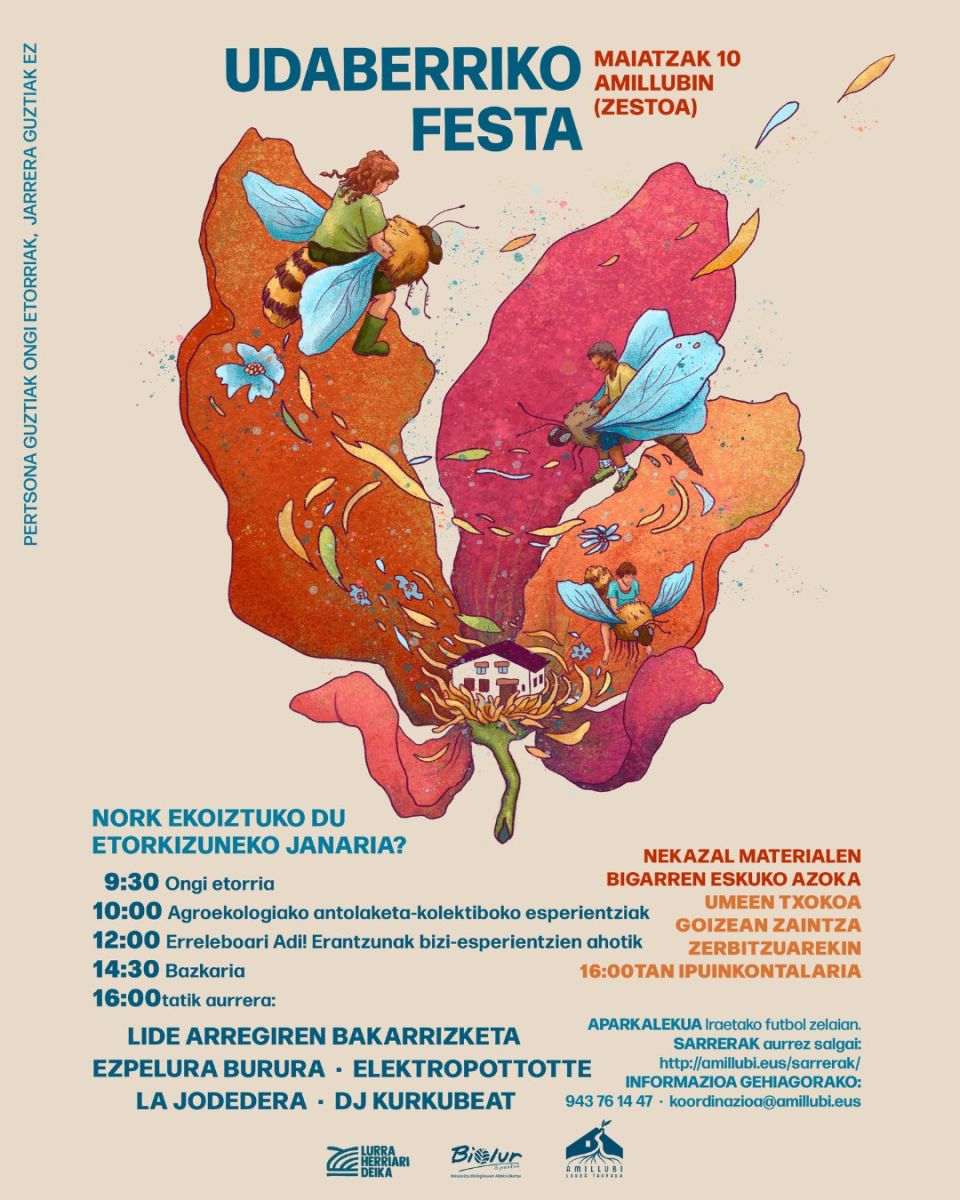
2020. urteko udaberrian lorategigintzak eta ortugintzak hartutako balioa gogoan, aisialdi aktibitate eta ingurune naturalarekin lotura gisa. Terraza eta etxeko loreontzietan hasitako ekintzak hiriko ortuen nekazaritzan jarraitu du, behin itxialdia bareturik. Historian zehar... [+]
Gaur abiatu da Bizi Baratzea Orrian kide egiteko kanpaina. Urtaro bakoitzean kaleratuko den aldizkari berezi honek Lurrari buruzko jakintza praktikoa eta gaurkotasuneko gaiak jorratuko ditu, formato oso berezian: poster handi bat izango du ardatz eta tolestu ahala beste... [+]
Euskal Herri mailan txikitik handira agroekologia sustatzen duten zenbait elkarte eta kooperatiba ataka larrian daude, finantziazio iturriak bertan behera geratu ostean. Erakunde publikoetatik, berriz, elikadura negozio gisa ikusten duten proiektuen aldeko apustu irmoa nabari... [+]
Iruñean bizi ziren Iñaki Zoko Lamarka eta Andoni Arizkuren Eseberri gazteak, baina familiaren herriarekin, Otsagabiarekin, lotura estua zuten biek betidanik. “Lehen, asteburuetan eta udan etortzen ginen eta duela urte batzuk bizitzera etorri ginen”, dio... [+]
Gipuzkoako hamaika txokotatik gerturatutako hamarka lagun elkartu ziren otsailaren 23an Amillubiko lehen auzo(p)lanera. Biolur elkarteak bultzatutako proiektu kolektiboa da Amillubi, agroekologian sakontzeko eta Gipuzkoako etorkizuneko elikadura erronkei heltzeko asmoz Zestoako... [+]
Emakume bakoitzaren errelatotik abiatuta, lurrari eta elikadurari buruzko jakituria kolektibizatu eta sukaldeko iruditegia irauli nahi ditu Ziminttere proiektuak, mahai baten bueltan, sukaldean bertan eta elikagaiak eskutan darabiltzaten bitartean.
Ibon galdezka etorri zait Bizibaratzea.eus webguneko kontsultategira. Uda aurre horretan artoa (Zea mays) eta baba gorria (Phaseolus vulgaris) erein nahi ditu. “Arto” hitza grekotik dator eta oinarrizko jakia esan nahi du, artoa = ogia; arto edo panizo edo mileka... [+]









